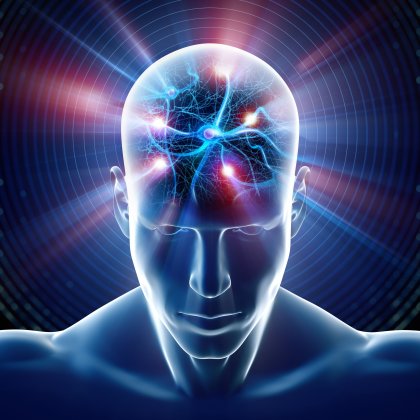
Stimulation of Dorsolateral Prefrontal Cortex Enhances Adaptive Cognitive Control: A High-Definition Transcranial Direct Current Stimulation Study Oyetunde Gbadeyan, Katie McMahon, Marco Steinhauser and Marcus Meinzer Journal of Neuroscience 14 December 2016, 36 (50) 12530-12536; DOI: https://doi.org/10.1523/JNEUROSCI.2450-16.2016
A cutting edge, non-invasive brain stimulation technique could improve cognitive control for people with conditions such as schizophrenia and autism, ADHD. Researchers at The University of Queensland’s Centre for Clinical Research have found the technique – which applies high-definition transcranial direct current stimulation to a particular area of the brain – improves cognitive and conflict control.
PhD candidate Oyetunde Gbadeyan said the study provides the basis to explore benefits for people with impaired cognitive control associated with schizophrenia, autism spectrum disorder or attention deficit hyperactivity disorder. “Cognitive control is the collective term for the processes by which people take in relevant information, but tune out distracting or irrelevant information to achieve goal-directed behaviour,” Mr Gbadeyan said.
“The smaller electrodes allowed researchers to better pinpoint the target region, in this case the dorsolateral prefrontal cortex.
“The improvement was greater with active brain stimulation than with placebo stimulation and, for the first time, established a direct causal involvement of the dorsolateral prefrontal cortex in cognitive control in humans.
“This method could improve the way people with impaired cognitive control process conflicting information but more research is needed to better understand the mechanisms of how it works.”
The study included 120 healthy young adult participants.
Each participant received active and placebo stimulation on separate days while completing behavioural tasks on-screen.
“Active stimulation to the selected target region improved conflict adaptation,” Mr Gbadeyan said.
“These findings also lend support to the theory that the dorsolateral prefrontal cortex region of the brain is central to behavioural adjustment following conflict detection.” https://www.uq.edu.au/news/article/2016/12/brain-technique-improves-cognitive-control
http://dx.doi.org/10.1523/JNEUROSCI.2450-16.2016
f








Recent Comments